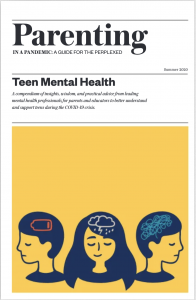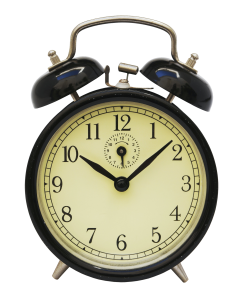From Distressing To De-Stressing
 10 Practical Evidence-Based Solutions for Staying Calm in Unsettling Times
10 Practical Evidence-Based Solutions for Staying Calm in Unsettling Times
Today we find ourselves in unsettling and unprecedented times. During “normal” situations it is not easy to raise children, let alone teens. People say, “Bringing up teenagers is like throwing Jell-O against a tree and hoping it will stick.” During this strange, COVID time, the added complications make our jobs even harder. This coupled with the 21st-century pace, our digital dependency, and distractions has pushed our lives into “the fast lane.” As a licensed clinical social worker for 30 years, I help people manage their lives with greater ease and equanimity. Never before have we needed solutions for staying calm in an ever complex and stress-inducing world. It is critical for us to gain control over our own wellbeing, staying best-equipped to take care of our families in our new world.
Here, I would like to share some quick and easy concepts and tools to get you through these times calmer, easier, and more positively. Presented here are some of the most current, evidence-based practices for remaining calm, more present, less digitally distracted, and more energized. With these benefits, you will have greater resilience and patience as a parent, being a better role model for your teen and loved ones. It is my hope that you will be able to utilize this toolkit for your benefit, and for those around you. Feel free to share with your children, your friends, and your own parents, if you’re lucky enough to still have them. Continue reading below or CLICK HERE to read this article in the online Parenting in a Pandemic flipping book.
 From Distressing To De-Stressing
From Distressing To De-Stressing
10 Practical Evidence-Based Solutions for Staying Calm in Unsettling Times
Rus Devorah (Darcy) Wallen, LCSW, ACSW
Research shows that by taking frequent, brief breaks for refreshment, you can prevent burnout and boredom, enhance your productivity, cognitive clarity, improve your mood, resilience, immune response, and more.
To reap the benefit, you only need to spend 30 seconds to one minute, once or twice per hour.
By doing various self-compassionate activities throughout the day, you can give yourself a “brain break” and “reset,” as well as activate your “good hormones” such as dopamine, serotonin, oxytocin, and endorphin. Additionally, you will diminish stress hormones and other things that detriment your wellbeing. Most of the issues and “ailments” we go to doctors for in the U.S. are stress-related and avoidable with lifestyle improvements and activities such as these.
I call brief breaks for the busy person a “micro-self-care” system when longer sessions are not possible. Setting a timer alarm can be very handy, especially at the beginning of the practice. Repetition and diligence are the keys to the neuroplastic effect. The research supports the benefit of short and frequent self-care techniques – “little and often.”
Most of the techniques below take very little time. As Ethics of the Fathers (1:14) teaches us in the name of Hillel the Elder, “If I am not for myself, who will be for me. If I am only for myself, what am I? And if not now, when?” It seems clear from the order of his message, that we must first take care of ourselves before taking care of others and we must do it now! As we have heard the flight attendant’s speech, “put your mask on first and then offer assistance…” If we’re not taken care of, we don’t have the capacity to care for others.
Here are 10 ways you can stay calmer, more refreshed, more focused, and better overall:
- CLOSE YOUR MOUTH! I know it may sound rude, but it’s healthier to breathe through your nose. Slow it down, and exhale longer. Each of these elements has a calming effect on the sympathetic nervous system’s “Fight or Flight Mode.”
- TAKE A BREAK frequently for refreshment. Practice regular Micro-Self-Care.™ The research suggests hourly breaks for 1 minute or each half-hour for 30 seconds to help us focus better and stay alert.
- TAKE DIGITAL HOLIDAYS. Plug your phone in another room. Don’t use blue light devices at least an hour before bedtime and put them in “red” warm light mode at nighttime. Consider times of the day when you do and do not use digital devices at all.
- DON’T FORGET BODY-MIND-SOUL ARE INTERTWINED as one. You are a holistic “gestalt” of body, mind, and soul. Each leg of the “stool” bolsters the others. If the mind is overactive or anxious, it affects the body and soul. If the body is agitated it affects the other two, etc. Use relaxation and meditation techniques to stay calm in body and mind respectively and learn ways to gain trust and faith that G-d will help you through your challenges. (See link below* for materials for the “Three-Legged Stool.”)
- SLOW DOWN AND STAY PRESENT so you can see clearly. You can only wake up when you slow down. Look inside. G-d is forcing us to go inside now with COVID. Make an inner accounting. If you are willing to do a simple meditation practice*, this enhances the prefrontal cortex – the mature brain, which in Yiddish is called “seichel.” (In Hebrew, it’s called “Chabad.”)
- YOU’RE THE DRIVER of your life and schedule. Don’t let people or machines dictate your timing and needs. Allow yourself to say, “no,” and go back to #5 – Slow Down.
- LANGUAGE IS THE BEST DISTRACTION. Oscar Wilde said, “Thinking is the most unhealthy thing in the world, and people die of it just as they die of any other disease.” When you’re in the head too much, thinking about challenging circumstances, distract yourself with reading, speaking, or singing, out loud, etc. Most people can generally think only one train of language-based thought at one time. By speaking or thinking in language, negative thoughts can be pushed out.
- GRATITUDE PRACTICE IS HEALTHY SO IS POSITIVE THINKING. I recommend a simple “4 Gratitudes” practice: In the morning before you begin your day and at bedtime before you go to sleep, write or say to yourself something: 1) you’re thankful to G-d for, 2) thankful to a loved one for, 3) grateful to a stranger, 4) show appreciation for something about you or that you did. (Recap: G-d, loved one, stranger/outsider, yourself).
- USE “INVISIBLE TIME” WISELY. Have “quickie” self-care activities handy while standing in lines, waiting for appointments, in between things, when doing boring repetitive things. Consider breathing slowly (#1, above), stretching, hydrating, walking in place, etc. Don’t be on auto-pilot and gravitate to your phone. Think of something more positive or productive you can do instead.
- STAY IN TOUCH WITH YOUR BODY. Your bodily experiences are very informative about other things going on. Consider pain, tension, temperature, movement, etc. “The body knows first.” It recognizes threats and warnings before our mind is aware. “If you can name it, you can tame it.” “Stay in touch with touch.” Don’t allow yourself to get to a “point of no return.”
We warmly welcome your comments. Thanks for visiting!
– Rus Devorah Wallen, Founder



Thank you for your distressing /de-stressing Ideas.. I also like your new format, name and graphics.. good job!!
Stay well and keep up the good work Rus Devorah!
Thanks! And thanks for reading .
Love the insight. Thanks for sharing.
Thanks for reading
Thanks for reading!